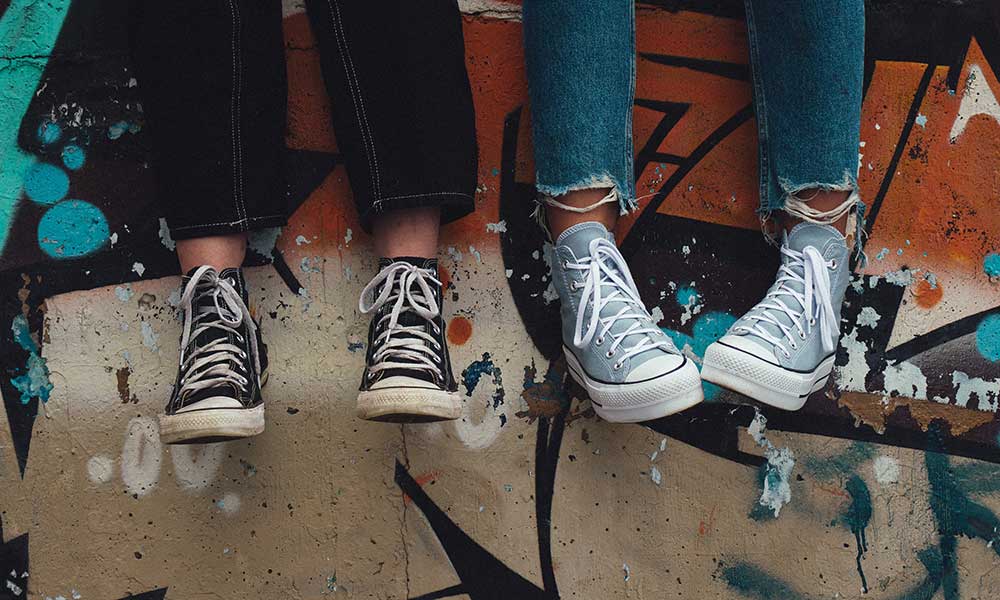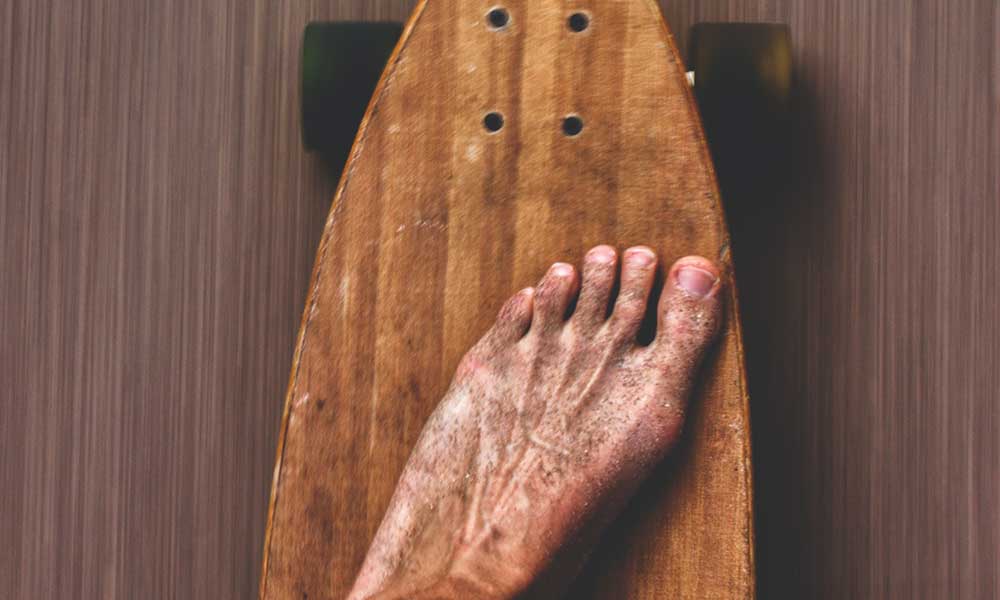There are many benefits to skating. It’s great exercise, can help you to lose weight, and will also introduce you to new people. But the benefits go much deeper than that.
Believe it or not, skating could help with depression and other mental health issues.
Not convinced? Read the following guide to learn more.
How Does Skating Improve Mental Health?
According to a recent study, skateboarding in middle-age can reduce the prevalence of mental health issues such as depression.
The research is clear—skaters feel better and suffer from lower rates of depression and stress. But what’s so beneficial about hopping on a skateboard and performing a few ollies and grinds?
Well, everyone is different, but for many skateboarders, the mental health benefits stem from the following:
New Friends
The skateboarding community is very friendly and welcoming. The same is true for most communities, as any time people share a common passion, they tend to be friendly toward others who have the same passion.
The history and culture surrounding skateboarding makes the community even more welcoming.
You could form new long-term relationships, find a new partner, or just spend time with people whose company you enjoy.
You don’t need to be young to be welcomed by this community. Middle-aged skateboarders and senior skateboarders are welcomed just as readily. After all, this is a sport that experienced its golden age during the 1970s and 1980s. The boarders who were in their teens and twenties back then are now over 60, and they definitely didn’t hang up their boards as soon as they got their first grey hair.
A Sense of Belonging
Any time you join a community of like-minded individuals, you feel a sense of belonging. It’s something that all humans need, and something that skateboarding provides.
You’ll be spending time with people who are just as interested in decks, trucks, ramps, and skateparks, people who are happy to talk about tricks and share some advice. They may even have similar musical tastes, as skateboarding is closely associated with punk and rock music.
Exercise
Exercise makes you feel good. It gets the blood pumping and the endorphins flowing. Skateboarding, like other sports, is a fantastic form of exercise as you don’t really feel like you’re exercising while you do it.
When your physical health improves, you’ll notice some similar improvements in your mental health.
An Excuse to Get Out of the House
It seems silly to suggest that anyone needs an excuse to get out of the house and exercise. But if you’re an introvert in a small town and you have a limited friendship circle, you may find yourself spending more and more time at home.
You go to work. Return home. Watch TV. Go to bed. And then repeat. Even if you get out of the house, it may only be to visit the pub, walk the dog, or complete a few chores.
Such issues are more common in middle-aged people, as they tend to get stuck in a rut. They lose the friends they had when they were younger, focus more on work and family, and eventually feel like they are trapped in the same monotonous cycle.
Simply having something new to do every day can make a huge difference to the lives of these individuals. The fact that they do it away from the familiar four walls is an added bonus.
It’s a Distraction
Try to worry about leaving the oven on or missing a deadline while you’re skating at speed and jumping over obstacles.
Try to worry about saying something stupid during a job interview while you’re attempting to learn new tricks and bail every few seconds.
You can’t. You’re too busy doing something else. And if you’re the sort of person who worries a lot and lets those worries get the better of you, that distraction could be just what you need.
This distraction is particularly useful if you’re struggling with substance abuse and need something to keep those cravings at bay.
Is Roller Skating Good For Depression?
Roller skating, like skateboarding, can provide a number of mental and physical health benefits.
It is an emotional outlet, a creative outlet, and a great way to exercise and boost self-confidence. It will also help you through personal trials, whether that means dealing with career challenges, a relationship change, or a midlife crisis.
The same is true for other extreme sports, including surfing and BMXing.
Is Skating Good For Anxiety?
Although skateboarding probably can’t cure anxiety on its own, it could assist indirectly.
It can help to reduce stress, boost self-confidence, and even give your life some spiritual meaning. It sounds like a stretch, but you’ll understand when you’re cruising down the street on a longboard or nailing a new trick at the skatepark.
Skateboarding is especially useful for people who struggle with social phobias and anxieties. When you’re out there, it’s just you and your board, but you likely won’t be able to shake the thought that everyone is watching you.
If you can get over this, and you can freely stake on ramps and half-pipes without caring what others think, you should notice a huge improvement in your self-confidence.
Should I Get a Skateboard?
If all of the above sounds like just what you need in your life, buy a skateboard and try it out.
It doesn’t matter how old you are or how experienced you are. These days, you’ll find skaters of all ages at the skatepark and as everyone has to start somewhere, no one will judge you if you can’t get the basics right.
If you have children, you could even invite them along for the ride. Skateboarding teaches riders of all ages that if you practice hard enough and long enough, the rewards will be intensely gratifying, and once you have a taste of that success, all of your woes will fade away.
Summary: Is Skateboarding Good for Depression?
Skateboarding could be an effective way to boost your mental and physical health. It’s a fun way to exercise, meet new people, and get some fresh way.
Older skateboarders can benefit just as much as young skaters, and you’re never too old to get started.
Of course, it can’t cure depression and anxiety in everyone. If it was that easy, we wouldn’t have a multi-billion dollar pharmaceutical industry and psychiatrists, psychologists, and counselors would be struggling to find clients. But it could provide a mental health boost and you have nothing to lose by trying it out.







